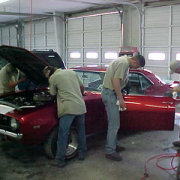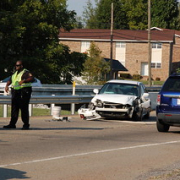How to Report Your Car Accident to Your Insurance Company
How to Report Your Car Accident to Your Insurance Company
Car accidents in St. George, Utah are a common thing. Lots of folks wonder what they should do right after an accident. There are certainly things that must be done at the scene of
the accident. Once those are complete, filing a claim with your insurance company is the next
item on your plate. You should always let your insurance know that there has been a crash, but
sometimes you may choose not to actually file a claim. Typically, filing a claim is a good idea,
but there are several things you should know before you begin that process.
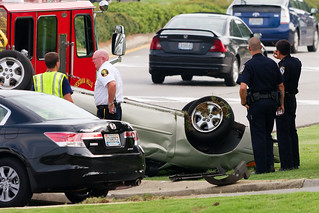 Photo Bydigitizedchaos
Photo Bydigitizedchaos- Right up front, the most important thing after a car crash is to be safe. Check everyone
around you for injuries and seek immediate medical attention for anyone that needs it. If
no one is hurt, don’t call 911. You will just clog up their lines with something that is not
urgent. Once you have assessed the situation, make sure that you are in a safe place. - Start out by getting the other driver’s name, license plate number, and insurance
information. You can do this by taking a picture of his license plate number, driver’s
license, and insurance card. Some driver’s will try to get out of exchanging information.
They don’t want you to call in an insurance claim. However, an insurance claim is
usually a good idea for you, and it is always a good idea for you when the other driver is
at fault. - Never leave the scene without a police report. A call to the police should be the very
first phone call you make after your collision. It is the only way to ensure you will have
a neutral third party statement available to be used later. Other driver’s may try to change
their story after the fact. These reports are not necessary for insurance companies to
determine fault, but they sure do make everyone’s lives a lot easier and they are free to
obtain, so get one! - If possible, when someone has witnessed your accident, the ideal situation would
be to have them wait for the police so they can file a statement in the report. The more
documentation, the better. If they won’t wait around, taking down the contact information
of a witness is the next best thing. Insurance companies and your personal injury
attorney can contact those witnesses later, if need be, to collect statements.
After the initial four steps, take enough time to make sure that you are calm, you are in a safe
place, and you have collected your thoughts. It will now finally be time to contact your insurance
company. You can look it up online, or call you insurance agent, but the easiest way to contact
your claims department directly is by using the phone number located on the back of your
insurance card. Keep in mind that you are speaking with your own insurance provider first; they
are there to protect you. Still, the conversation will be recorded and you need to make sure your
claim is not undervalued from the start. That is why it is sometimes wise to not call at the scene
of the accident. Only in severe accidents do people realize that quickly that they have been hurt
while they are still on the scene of the accident. Do not tell your insurance company that you
were not hurt and the property damage is minimal. You are not a doctor, and you are not an auto
mechanic. Leave those issues open for them to decide. Tips to keep in mind:
- Do not be emotional or make exaggerations on the phone. Be factual and practical.
- Failure to report an accident can cause huge problems for you in the future, you do not
have to call from the scene, but DO NOT avoid calling altogether.
If the adverse driver’s insurance company contacts you, do not speak to them. Refer them to your
personal injury attorney. Always consult with a personal injury attorney after an accident. He or she can relieve the majority of the stress that comes with a car crash.
This article is offered only for general information and educational purposes. It is not offered as and does not constitute legal advice or legal opinion. You should not act or rely on any information contained in this article without first seeking the advice of an attorney.
How to Deal With Auto Insurance Claims Adjustors
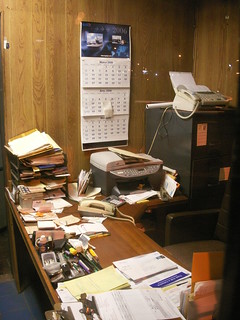 Photo by Daniel Lobo
Photo by Daniel LoboHow to Deal With Auto Insurance Claims Adjustors
There are many car accidents every month in Southern Utah. Car accidents are stressful. Perhaps the saddest part is that the stress does not go away when you leave the scene of the accident. There are two different claims you may or may not have after any car accident. The first is property damage (damage to your vehicle and other personal property), the second is bodily injury (damage or injury to you). When you first place a phone call to your insurance company, you are simply notifying them of an accident. They will assign adjustors to your claim. Those adjustors will call you as soon as possible so they can start gathering information that will allow them to pay you as little as possible. It is not that they are evil human beings, they’re not. They are employees. Usually good employees. Employees of a huge company who pays them to value claims for as little as possible, then get you to accept their offer happily. This process helps their company turn a profit. They are doing their job, so there is no reason to be angry or rude with them. In fact, treating them as your adversary will likely slow the process down and will not help you. So how should you deal with the various insurance adjustors that will call you after an accident? The following are some basic tips to help you be successful in dealing with any insurance adjustor you come across.
- Be courteous but careful. Be polite and cooperative. It is human nature to respond negatively to negativity. Your insurance adjustor is likely dealing with hundreds of claims at any one time. Do not be the claimant who gets notated as a jerk in your adjustor’s notes after the phone call. That is how they will remember you.
- Be cautious. Do not give away too much information. Stick to what they need to know, just the basics. Any time they ask for personal information, or more particularly, a signature, make sure you proceed with extreme caution. You may want to consult a St. George Utah personal injury attorney first.
- Be prepared. Always have your documents and a pen and paper handy. You need these for two reasons. It can be very difficult to get an adjustor on the phone. You will usually be leaving a message and waiting for a call back. When they do call, you must be ready. They may want certain types of documentation from you, such as the police report or you medical bills. Keep those in a folder in your car so you have them with you at all times. You will need the pen and paper because you should create notes of your conversation. Adjustors are commonly being reassigned, you do not want to waste time negotiating the same issues twice. If you take good notes, and send documentation to the insurance company. You will be much better protected.
- Be patient. Insurance adjustors will use all kinds of tactics to get you to settle your claim as early as possible, for as little as possible. These may even include strategies such as calling you at a busy time so you are forced to get off the phone quickly, or even calling you during the holidays so that you are more likely to be desperate for a little extra cash. Do not fall for these. Wait it out. Accept an offer on your time table.
- Always counter offer. Never accept the first offer. That is the insurance adjustor’s floor. Ask for an amount even higher than what you think is fair, that way, when the adjustor counter offers back to you, he will choose a number in between his original offer and your counter. That is likely to be the fairest amount.
- Call an attorney. This article and others like it can give you the basics. What this article cannot do is replace the enormous value that an experienced car accident attorney would add to your case. Attorneys only get paid if you win your case, and their fee will be minimal compared the added value they will bring to your claim.
This article is offered only for general information and educational purposes. It is not offered as and does not constitute legal advice or legal opinion. You should not act or rely on any information contained in this article without first seeking the advice of an attorney.
Auto Accident Insurance Claims Process
Auto Accident Insurance Claims Process
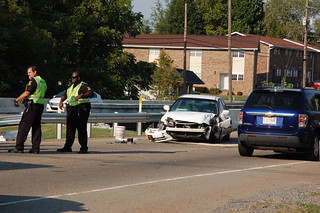 Photo By Robert Spiegel
Photo By Robert SpiegelYou need to know what you are doing before you make a call to report an auto insurance claim to your insurance company. If you don’t, you may be shorted and you may not get the amount of money that is fair based on the damage that you have suffered. Anyone who was in the car at the time of the car crash has a right to file an insurance claim. Understanding the process of filing an insurance claim will give you the advantage that you need to make sure you are taken care of.
The initial thing to do is to make the phone call to your own insurance provider to report that you have been in a car accident in St. George, Utah. The person on the other end of the line will be extremely inquisitive as to the details. They want to know who was involved, how it happened, when it happened, and nearly everything else you can think of relating to the accident. Once they have all that info, they will open your claim. It is important to remember that they are recording your phone call. There is usually no way to know how badly you were injured before seeing a doctor. Oftentimes, back and neck pain can take days before the pain shows up. In the meantime, do not be tricked by the at-fault driver’s claims adjuster. He or she will likely call you, and will likely be very friendly. Their intention is to record you saying that you have not been hurt. Do not lie to them. Telling them that you were not hurt would be one way to lie, because, immediately after the accident, you would have no way of knowing if you have been hurt.
Helpful Tip:If you were in fact injured in your accident, you need to call an experienced auto accident attorney. That may sound like an overgeneralization, but you can obtain a free consultation to discuss your claim. If nothing else, they can give you guidance on how to take the next step whether or not you actually choose to hire an attorney.
After you have called in your accident to the claims department for your own insurance provider, you will be contacted by your own claims adjustor. You do not need to be quite as guarded when you receive this phone call. Your insurance company is there to protect you. They will assign an adjustor to handle your property damage to your vehicle, and probably a different adjustor to handle you PIP matters if you live in Utah.
The property damage issue is quite easy to take care of. Your insurance company will pay to get your car fixed. They will likely seek reimbursement later from the other driver’s insurance company if you were not at fault. You don’t need to worry about that. Your adjustor will likely recommend a body shop to get an estimate. You do not have to use their body shop, but it may make the process much quicker if you do. You also do not have to fix the car, assuming that it passes inspection. After you get the estimate, and give it to your insurance company, they will write you a check. You could choose to just pocket the cash.
Once the property damage issue is resolved, things get much more complicated. Determining fault and valuing claims for bodily injuries are both matters that require a personal injury attorney. Prior to choosing one, some important things to keep in mind are that you always want a police report at the scene of the accident, and you must never sign anything you receive from the other driver or his insurance company.
This article is offered only for general information and educational purposes. It is not offered as and does not constitute legal advice or legal opinion. You should not act or rely on any information contained in this article without first seeking the advice of an attorney.

